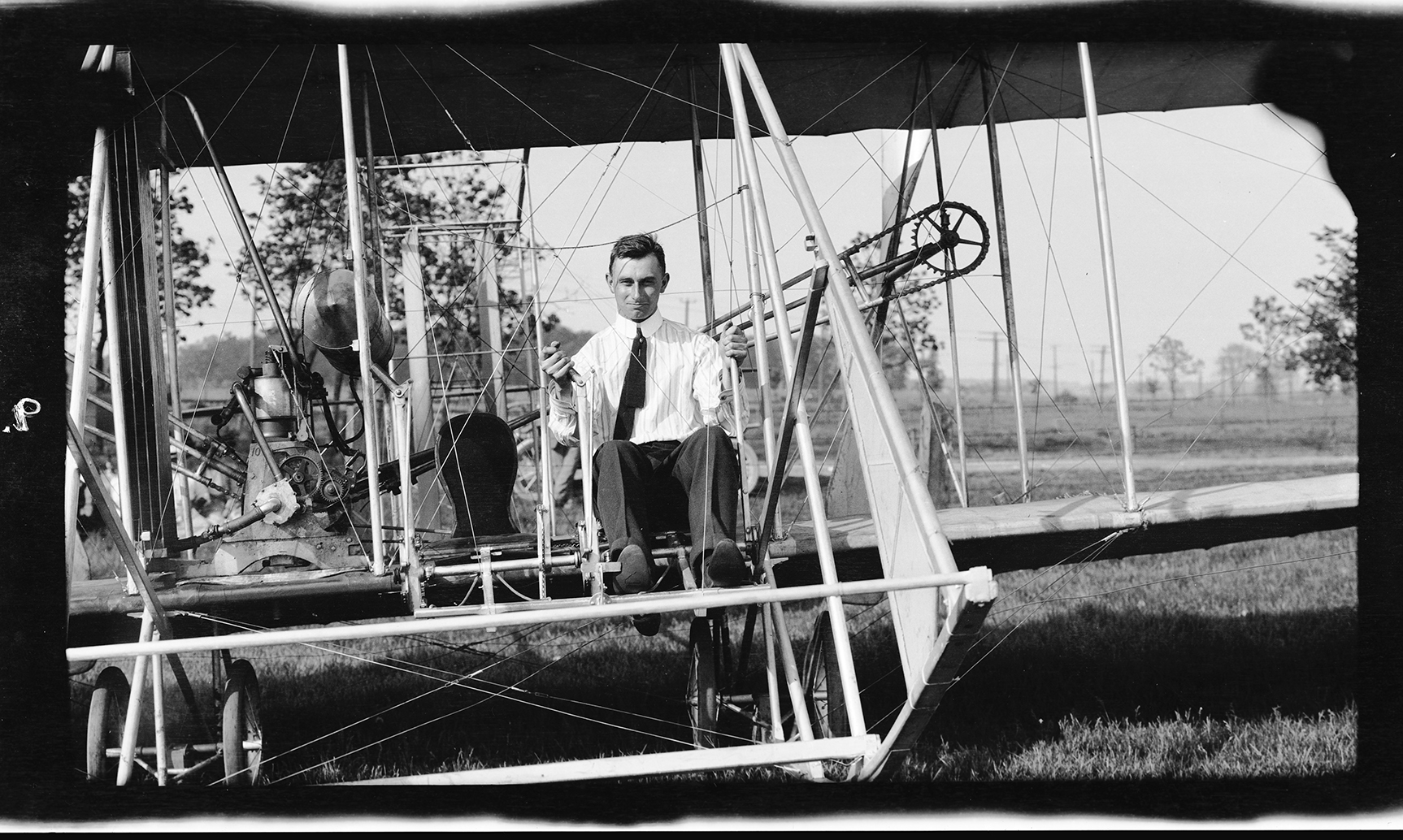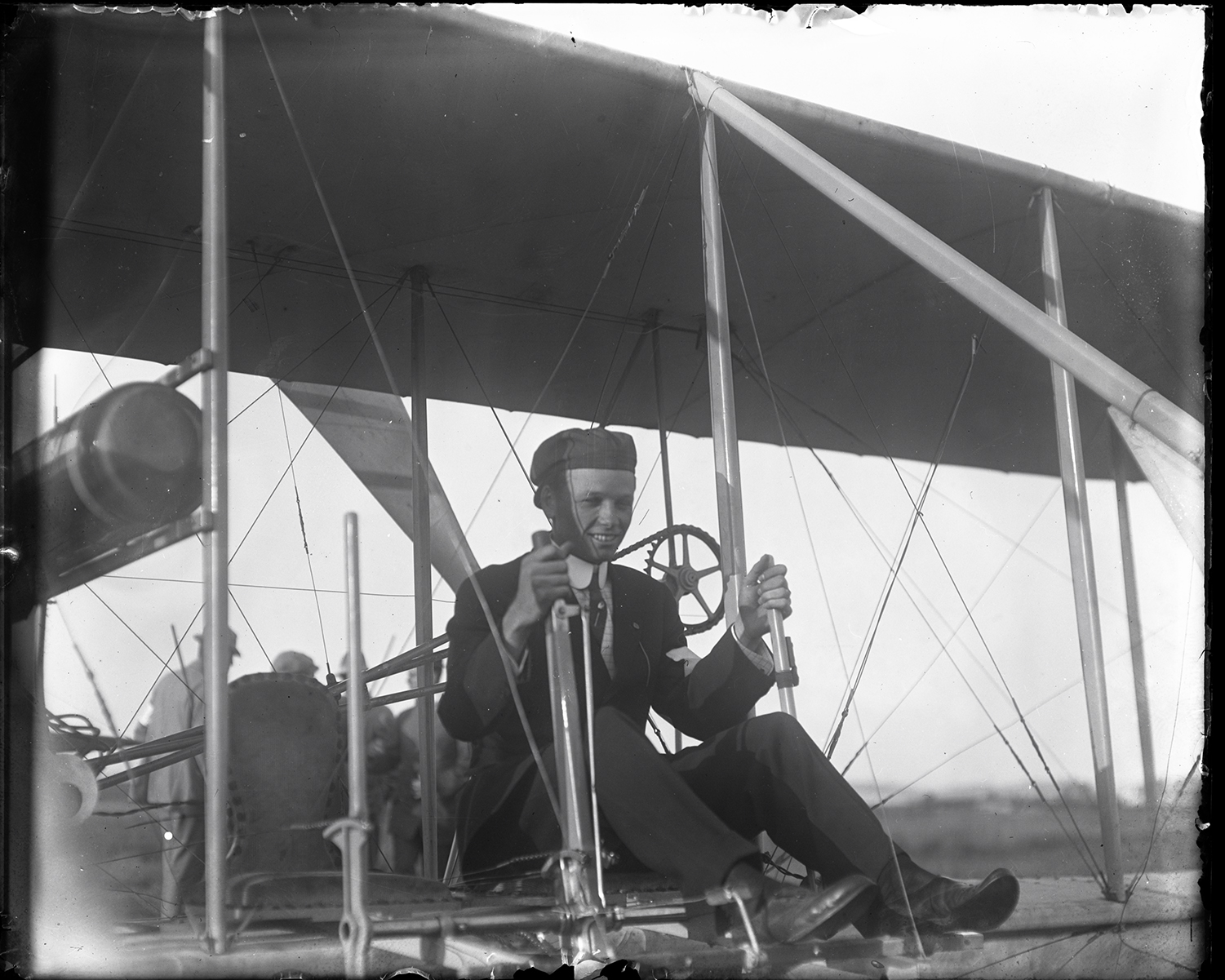If you’ve been following us on Facebook or Twitter, you have probably noticed the posts containing passages from Bishop Milton Wright’s diaries, 100-years-ago-today style. The passages are very short and usually comprise the entirety of that day’s diary entry. (Very few of the Bishop’s diary entries are longer than a few sentences.)
The Bishop often mentions activities involving acquaintances with very little explanation—partly because the entries are so brief and partly because, as he himself knows the person(s) of whom he speaks, no further explanation was necessary for his own record. But for most of us, these references are not always clear.
For instance, Bishop Milton mentions “Aviator Atwood” and “Lieut. Milling” in two entries from April 1914. The entries read as follows:
Saturday, April 11. Reuchlin supped at Lorin’s. Katharine supped with Mrs. Hubard, at 1st & Main Club. Orville went [to the] Algonquin [Hotel] to see Aviator Atwood. It is a rainy day.
Wednesday, April 15. Lieut. Milling visited Dayton, on his way to St. Louis. He did not call at our house, but sent his regards to me.
So who were Aviator Atwood and Lieut. Milling?
The Bishop is almost certainly referring to Harry Nelson Atwood (1883-1967) and Thomas DeWitt Milling (1887-1960). Both men were pilots who learned to fly at the Wright Flying School at Huffman Prairie.

Atwood learning sense of balance at Simms (Station), 1911 (from Ivonette Wright Miller Papers, MS-216 8:1, also available in MS-355 Charles Wald Collection 1:65 available in CORE Scholar)
After learning to fly with the Wright Brothers, Atwood briefly taught others to fly, then turned his attention primarily to making exhibition flights.

Harry Atwood at the controls of a Wright Model B Flyer, 1911 (from MS-355 Charles Wald Collection 1:61, also available on CORE Scholar)
Milling, along with others including Henry “Hap” Arnold, had been sent to the Wright Flying School by the U.S. Army Signal Corps to learn to be trained as pilots for military purposes. In 1911, Milling won the second Harvard-Boston Aero Meet Tri State race in a biplane. He was involved in early military aviation for a number of years and rose through the ranks of the U.S. Army, ultimately becoming a brigadier general.

Lt. Thomas D. Milling in Burgess-Wright biplane at Harvard-Boston Aero Meet, 1911 (from MS-338 Harvard-Boston Aero Meet Collection 2:8, also available on CORE Scholar)
It must have been exciting for the Wrights to see how these students applied what they had learned at Huffman Prairie and then “took off” with it (in this case, literally) and noteworthy as well when they came back to Dayton to visit.
Well, clearly, Bishop Milton felt that it was noteworthy, or he wouldn’t have noted it!
